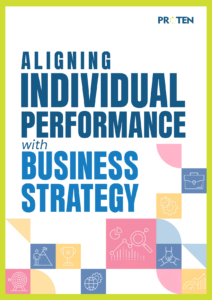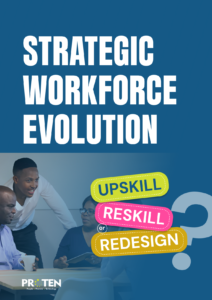Let’s discuss your cover letter.
So, you’ve got your resume all polished up and ready to go. You’ve spent hours crafting the perfect summary, detailing your skills, and highlighting your achievements. In fact, it’s 99% sure to pass through the applicant tracking system. Now, it’s time to tackle the cover letter. But before you start typing away, let’s take a moment to discuss some of the most common mistakes job seekers make in their cover letters.
Your cover letter is your first opportunity to make a positive impression on a potential employer. It’s a chance to introduce yourself, highlight your relevant skills and experiences, and explain why you’re a good fit for the role. But a poorly written cover letter can do more harm than good. It makes your application look bad. And a terrible application leads to getting ghosted by hiring managers.
That’s why here, we’ll discuss three of the most common mistakes job seekers make in their cover letters and how to avoid them. By following these tips, you can increase your chances of getting your application noticed and landing an interview.
Mistake 1: Your cover letter is generic.
As an agency with recruitment being one of our core functions, one of the most common mistakes we see job seekers make is sending out generic cover letters. These are letters that are essentially the same for every application, with only a few minor tweaks to the company name and job title. While it’s tempting to save time by using a template, a generic cover letter will likely get your application tossed in the trash.
Why is that? Well, think about it from the recruiter’s perspective. They’re sifting through countless applications, and they’re looking for candidates who are truly interested in the position and the company. A generic cover letter shows that you’re not taking the time to tailor your application to the specific job and company you’re applying for. It’s like sending a mass email to everyone in your contacts list and expecting a personalized response.
Imagine you’re a recruiter. You’ve been staring at a screen filled with cover letters all day. Suddenly, you come across one that actually mentions something specific about the company or the job you’re hiring for. It’s like a breath of fresh air! That’s because the candidate has taken the time to show that they’ve done their research and are genuinely interested in the opportunity.
On the other hand, a generic cover letter is like a cookie-cutter template that doesn’t tell the recruiter anything about you as an individual. It’s a missed opportunity to showcase your unique skills, experiences, and passion for the role.
In short, a generic cover letter is a red flag to recruiters. It suggests that you’re not taking the job application process seriously and that you’re simply throwing your hat in the ring without giving it much thought. If you want to increase your chances of getting noticed and landing an interview, it’s essential to take the time to tailor your cover letter to each specific application.
Mistake 2: You’re being a bot.
And by being a bot, we mean you’re not connecting with them. In addition to tailoring your cover letter, it’s also important to make a personal connection with the company. This means going beyond simply stating your qualifications and explaining why you’re a good fit for the role.
One way to do this is to share a personal story or anecdote that illustrates your relevant skills or experiences. For example, if you’re applying for a customer service position, you could talk about a time when you went above and beyond to help a difficult customer. This will help the recruiter see you as more than just a resume and give them a sense of your personality. It’s all part of the human connection, which is one of the things you need if you want to land an interview.
Another effective strategy is to mention something specific about the company that you admire. This could be anything from their company culture to a recent achievement. By showing that you’ve done your research and are genuinely interested in the company, you’ll be more likely to stand out from the competition.
Think about it this way: When you’re interviewing for a job, you want to make a lasting impression. A well-crafted cover letter can help you do just that. By taking the time to make a personal connection with the company, you’re showing the recruiter that you’re not just another applicant. You’re someone who is genuinely interested in the opportunity and who can contribute to the company’s success.
Mistake 3: You Mistaken Length for Depth
We’ve already discussed the importance of keeping your cover letter concise. But let’s take a closer look at why overly lengthy letters can be a problem.
Recruiters are busy people, and they don’t have time to read through lengthy, rambling letters. A long cover letter can also make it difficult for the recruiter to find the most important information. When you’re writing your cover letter, focus on the most relevant details and avoid unnecessary fluff.
Imagine you’re a recruiter. You’ve been sifting through countless applications all day. Your eyes are starting to glaze over. Then, you open a cover letter that’s two pages long. Do you think you’re going to take the time to read it all? Probably not.
Recruiters are looking for concise, informative cover letters that get to the point quickly. A long, rambling letter is a waste of their time and a missed opportunity for you to make a strong impression.
To help you stay on track, try to keep your cover letter to one page. This will give you enough space to highlight your key qualifications and make a strong impression without overwhelming the reader.
Remember, your cover letter is your chance to introduce yourself to a potential employer and make a positive first impression. By avoiding these common mistakes and following the tips outlined above, you can increase your chances of getting your application noticed and landing an interview.
In Conclusion…
Your cover letter is your first impression on a potential employer. It’s your chance to introduce yourself, highlight your relevant skills and experiences, and explain why you’re a good fit for the role. But a poorly written cover letter can do more harm than good.
By avoiding the common mistakes discussed in this article, you can increase your chances of getting noticed and landing an interview. Remember to tailor your cover letter to each specific job and company, make a personal connection with the company you apply to, and keep it concise.
With a little effort, you can create a cover letter that will help you stand out from the competition and increase your chances of landing your dream job.
And while you’re at it, why don’t you check out our new career portal? So many recruiters that you won’t find anywhere else are looking for the best of the best, and you just might be who they need. Click here to begin a journey of connections that will launch your career.











